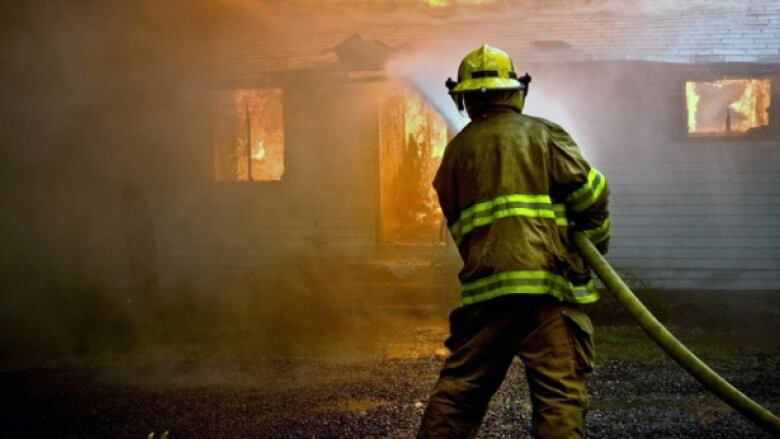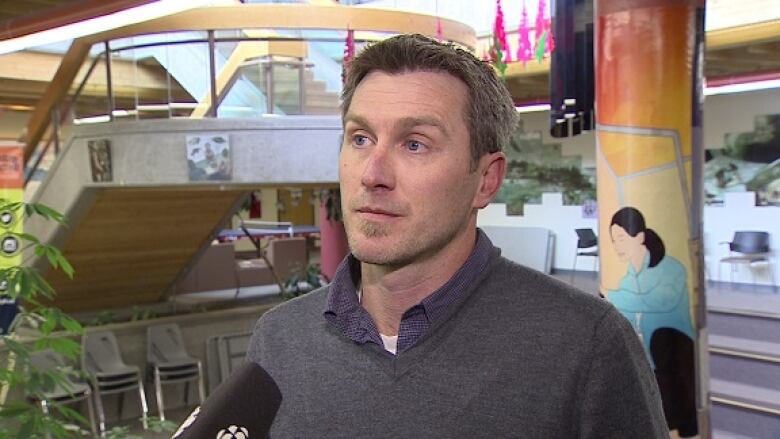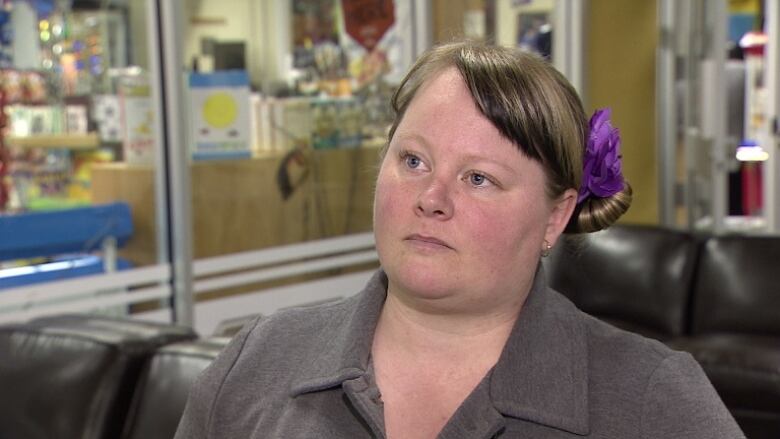Yukon College PTSD course a 'step in the right direction:' paramedic
1-day course aims to help first responders and their spouses recognize symptoms of PTSD

Devin Bailey can remember the call he responded to five years agothat made him hug his kids a little bit tighter when he got home.
It was the kind of tragedythat kept him up at night, thinking about the family involved, and hopingto never have to deal with something similar withhis own family.
That incident made Bailey realizehe needed support.

Although Yukon's first respondersreceive a lot of training specific to rescues and emergencies, they aren't trained on how to manage the psychological stress that may result from these duties.
A new course offered by Yukon College may be the first step in changing that.
Survival Skills for the First Responders, a one-day course held for the first time this week, is meant to raise awareness about post traumatic stress disorder for front line workers and their spouses.
Bailey thinks all firstrespondersshould do training like this.
"Every little calltakes a little bite out of your soul. And over the course of time, you wouldn't be human if it didn't effect you."
Survival skills is taught by Mike Swainson, a veteran emergency responder who delivers crisis intervention training at the college. Hesays this course will help first respondersbetter cope with the emotional toll of their jobs.
Chris Cleland hopes so.
"I've always been that things didn't bug me, but, it adds up over time," says the firefigher.
Clelandwas diagnosed with PTSD last year and waited months for his treatment to be approved through a bureaucratic process.

"We ended up having to really fight to prove that he had PTSD, and you hit a lot of roadblocks, says Stefanie Cleland. "With any mental illness, when you first come forward it takes a lot of guts."
The couple hope this course is the first step in getting the territorial government to introduce presumptive PTSD legislation, similar to that enacted in Alberta.
The legislation in that province means that if a first responder is diagnosed with PTSD, it is presumed to be work-related. The responderis notrequired to link their PTSDwith a specific incident.
If similar legislation was adopted in Yukon, it would make treatment and services for PTSD victims easier to access.












_(720p).jpg)


 OFFICIAL HD MUSIC VIDEO.jpg)
.jpg)



























































































